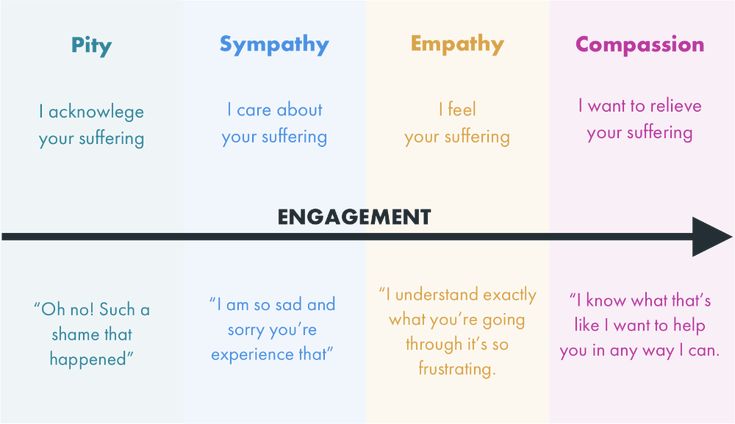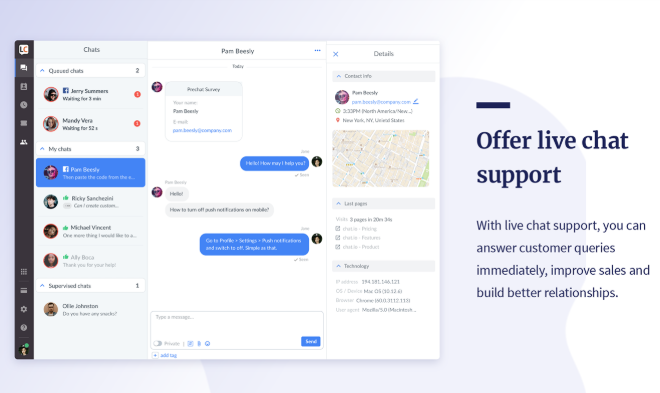Can introverts become leaders
The surprising reasons why introverts make exceptional leaders
Many people associate leadership with extroversion. That never-met-a-stranger, vocal, high-energy, Type-A stereotype is just one type of leader. The fact is, good leadership comes in many shapes and sizes – and personality types.
Some may think that extroverts are the natural leaders. But the unconvinced may be surprised to learn that some of today’s most successful business leaders are introverts. Consider this list: Bill Gates, Warren Buffett, Mark Zuckerberg, Marissa Mayer and Elon Musk. Yep, all introverts.
Historical leaders who were introverts include Abraham Lincoln, Eleanor Roosevelt, Albert Einstein, Rosa Parks and Mahatma Gandhi. Not a shabby bunch at all.
The truth is that businesses need both types of leaders. Here’s why introverts can make great leaders.
The historical and social context of introverts
It’s interesting to evaluate leadership types in the context of recent history: Fifteen to 20 years ago the U. S. workplace generally associated leadership as character, trust and integrity, which are values more closely tied to the quiet dignity of introversion.
More recently, businesses switched to thinking of leaders as the more vocal, charismatic motivators, or the traditional extrovert. Regardless of your corporate culture, it’s vital to promote both types of leaders to harness the strengths of both personality types.
It’s important to note that other countries perceive the leadership of introverts and extroverts differently than businesses in the United States. If your company operates in other countries, your gregarious, assertive extroverted leaders may not fit well with cultures that value a quieter, more reflective style.
The listener and thinker
Two of the key traits of introversion, listening to others and quiet reflection, can make them good at leadership. After all, it takes a listener to gather customer feedback and employee observations, and a critical thinker to put together common elements that may result in a new business opportunity.
When a customer or employee is unhappy, the introvert is more likely to listen in-depth before a rush to judgment, which helps the unhappy person feel heard. Yes, sometimes quick action is necessary, but in today’s complex world, a well-thought-out response may be the better option.
Yes, your sales force may be more heavily populated with extroverts. But that doesn’t mean an introvert can’t be great at sales. An introvert who listens well and pays attention to subtle clues may be better at sales than you’d imagine. Listening thoroughly is likely to make a customer feel understood and appreciated, which is always good for sales.
Not necessarily shy
Introverts possess a variety of skills that can make them good business leaders, particularly in businesses that value innovation and entrepreneurship. We’ve already mentioned critical thinking and listening skills. Introverts also tend to excel at written communication, outside-the-box-thinking and problem solving.
Introverts aren’t necessarily shy or quiet or bad at public speaking. Those are myths. However, your introverted employees may need a bit of coaching on why breaking out of their comfort zones is good for the company and their careers.
Those are myths. However, your introverted employees may need a bit of coaching on why breaking out of their comfort zones is good for the company and their careers.
For example, technical fields such as engineering tend to draw more introverts. When your lead engineer, Tom, turns team manager, you may have to encourage him to engage in more face-to-face coaching than comes naturally.
Introverts on the management track may also need to be reminded to actively advocate for their employees, something extroverts tend to do better. Remember that much of good management technique can be learned and must be taught to extroverts as well as introverts.
Training opportunities abound
Extroverts, brace yourselves. Today’s all-digital, all-the-time environment means that young people entering the workforce tend to communicate in a more introverted fashion. They’re accustomed to highly individualized social interaction and communicating by text, social media and email to get and share information.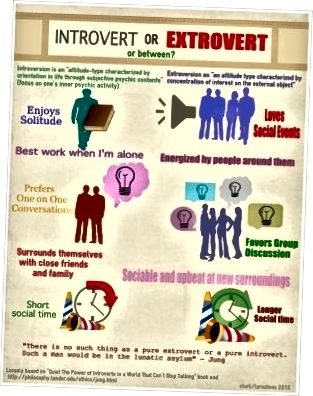 This change, already seen in workplaces that hire millennials, points to training and development opportunities.
This change, already seen in workplaces that hire millennials, points to training and development opportunities.
Your younger managers may need extra coaching on the value of face-to-face communications, what types of messages are better delivered one-on-one, and when to use email versus a meeting to deliver news.
When considering the leadership qualities of your team, remember: extroversion versus introversion is simply a matter of how a person handles stimulation. Extroverts gain energy from interacting with others. Introverts gain energy from quiet reflection and isolation. Both personality types can be equally creative, passionate and articulate leaders.
So, don’t overlook the quiet ones in the corner. They may harbor just the leadership qualities your company needs to succeed.
Whether you hire introverts or extroverts, you need to create a strategic plan for workforce growth. Download our guide How to Develop a Top-notch Workforce That Will Accelerate Your Business today.
Why introverts can be great leaders
Susan Cain
Kimberly White | Getty Images
It can be easy to overlook the quiet person in the room. But they may actually harbor qualities that can make them great leaders, according to Susan Cain.
Cain, a best-selling author and one of TED's most popular speakers, has been discussing how people often misunderstand introverts and the qualities they possess for a decade now. At a "Talks at Google" lecture in 2012, she noted that introverts — who are often boxed into the stereotype of being shy, quiet and reserved — tend to be viewed as incapable of becoming leaders and inferior to their extroverted counterparts.
"The bias in our culture against introversion is so deep and so profound, and we internalize it at such an early age," Cain, an introvert herself, said. She added that introverts are "routinely passed up" for leadership positions.
In a 2021 YouGov survey, 52% of Americans said they were more introverted than extroverted, with 12% calling themselves "completely introverted. " The actual definitions of introvert and extrovert differ from the stereotypes: According to Cain, extroverts crave high-stimulation environments, gaining energy from activities like meeting new people or going to parties.
" The actual definitions of introvert and extrovert differ from the stereotypes: According to Cain, extroverts crave high-stimulation environments, gaining energy from activities like meeting new people or going to parties.
By contrast, Cain said, introverts thrive in quieter and less stimulating environments, like smaller gatherings with close friends — and that shouldn't disqualify them from leadership opportunities.
Here are three qualities of introverts that Cain believes can make them exceptional leaders:
Introverts can be more conservative about risk taking
Risk-taking is often regarded as vital to great leadership. But in reality, leaders shouldn't take risks just for the adrenaline rush — and a more conservative approach to decision-making can help you identify smart risks worth taking, Cain said.
Introverts don't usually ignore "warning signals" like extroverts do when contemplating a risky decision, from seeking a high-level promotion to investing in a risky asset, Cain said. They're also less likely to make rash decisions that could end up harmful to themselves or those around them, she added.
They're also less likely to make rash decisions that could end up harmful to themselves or those around them, she added.
"This is not to say that introverts don't also take risks, because they do," Cain said. "But they tend to be more slow and more circumspect about it."
One of her go-to examples: Warren Buffett, a self-described introvert famous for sitting out on market bubbles that often suck in other investors, who has stated as far back as 1985 that his temperament is the key to his investing approach.
"You need a stable personality," Buffett told PBS' "Adam Smith's Money World" that year. "You need a temperament that neither derives great pleasure from being with the crowd or against the crowd, because this is not a business where you take polls. It's a business where you think."
Introverts can be more creative
Decades-old research shows that "highly creative people" in both artistic and scientific fields are often introverted. Cain's explanation is that most introverts are comfortable with solitude, or being alone: "That is the key component because solitude turns out to be a real catalyst to creativity. "
"
That's not to say that extroverts aren't creative — rather, Cain said, introverts are often more able to tap into a higher level of creativity. It's human nature to mimic the opinions of those around you, Cain said, and being alone can help you tap into your own ideas, helping you access your creativity without distraction.
That can give introverts a leg up as leaders: High levels of creativity can help you come up with better ideas more regularly, and find unique solutions to problems.
Introverts can be better problem solvers
Those creative thinking skills are closely tied to another common introvert trait, according to Cain: the ability to effectively solve problems.
Introverts often process information more carefully than other people, and the closer scrutiny can help them arrive at better solutions. "The behavioral style that has you sitting still more, reflecting more, being more reserved, being more slow to process stuff," Cain said.
In an Iranian study published in January, researchers asked a group of language translation students working on texts of more than 500 words to describe their thought processes out loud as they worked.
The study's goal was to identify differences in problem-solving strategies between introverts and extroverts — and it ultimately found that the introverted students performed better, because they paused longer to carefully read the material and weigh multiple options for the best translation.
"This two-tier structure of how we view personality leads to a colossal waste of talent, and of energy and of happiness," Cain said. "We need to be adopting much more of a yin and yang approach of balance between the two styles."
Sign up now: Get smarter about your money and career with our weekly newsletter
Don't miss:
These Stanford experts say humor is the key to great leadership: ‘We can do serious things without taking ourselves too seriously’
What type of leader are you? It may depend on whether you're an older or younger sibling, psychologist says
How to become a leader if you are an introvert
March 9, 2021Motivation
Recognize your strengths and learn how to use them correctly.
Share
0Just because you're an introvert doesn't mean that you're destined to always play the role of "that weird dude who sits in the corner and is silent." You can be a leader - moreover, you simply have to become one.
The ability to form a team, manage it and set goals, make decisions, take initiative and delegate responsibilities - these skills will sooner or later be needed by any introvert who grows up in his professional field. To get them, you don’t have to do anything supernatural - you already have all the necessary abilities. You just need to apply them correctly. Features of your character can become your advantage.
A leader is perfect when people are unaware of his existence... A good leader doesn't scatter words, and when the job is done and the goal is achieved, people say: "We did it ourselves."
Lao Tzu
Introversion and extraversion are thought to be at opposite poles, but in fact each of us has distinct traits of both types. The main difference between them is that introverts are introverted and pay close attention to their own experiences and sensations, while extroverts look for inspiration in the world around them.
The main difference between them is that introverts are introverted and pay close attention to their own experiences and sensations, while extroverts look for inspiration in the world around them.
Introverts make excellent leaders, and sociability has nothing to do with it. Their sharp mind, ability to think carefully and analyze, attention to detail and the ability to build stronger and more meaningful relationships with others are important (small conversations are the real curse of any introvert).
Such qualities are fully consistent with the quote from the wise Lao Tzu above. This has also been proven by world-famous introverted leaders who have achieved success due to the peculiarities of their character: Barack Obama, Mark Zuckerberg, Richard Branson and JK Rowling. Susan Cain describes them in her book Silence: The Power of Introverts in a World of Chatting.
Here are five tips to help you reach your goal.
1. Talk about your achievements
Regardless of the quality of the work they do, introverts often remain in the background because they do not want to talk openly about their successes. In the end, the result is important, not the amount of attention attracted, they say.
In the end, the result is important, not the amount of attention attracted, they say.
Introverts are famous for their incredibly meticulous approach to getting work done and their complete disregard for self-promotion.
It's a paradox, but it only makes it harder to move up the career ladder. An introvert needs to figure out what he's really good at and learn how to talk about his accomplishments in order to get the position he deserves.
2. Build deeper and more meaningful relationships with those who make important decisions
A popular misconception is that introverts are timid and asocial people who avoid interacting with others at all costs. In fact, they are energized by being alone with themselves. And at all introverts are not afraid to talk to people, just communication very quickly puts their internal batteries.
What does this mean? It's simple: making new acquaintances, an introvert seeks to give them a deeper character than non-committal chatter. Such is the superpower - he establishes relationships that are remembered for a long time by his interlocutors. By connecting with powerful people in the company and sharing their unique ideas, introverts can stand out from the crowd and succeed.
Such is the superpower - he establishes relationships that are remembered for a long time by his interlocutors. By connecting with powerful people in the company and sharing their unique ideas, introverts can stand out from the crowd and succeed.
3. Find interesting solutions to problems through attention to detail and the ability to listen
These are traits common to most introverts. They are used to analyzing everything and delving into themselves, so they easily notice the details of projects missed in a joint discussion and find a way out of situations where, it would seem, there are no ends to be found.
Such qualities make introverts valuable members of any team. They first listen and think, and only then they speak. Use these skills in discussions that involve multiple points of view, and the attention of others to your words will not take long.
4. Embrace solitude, but overcome isolation
Most introverts are only really comfortable with themselves, so they need to spend some time alone during the day to feel good.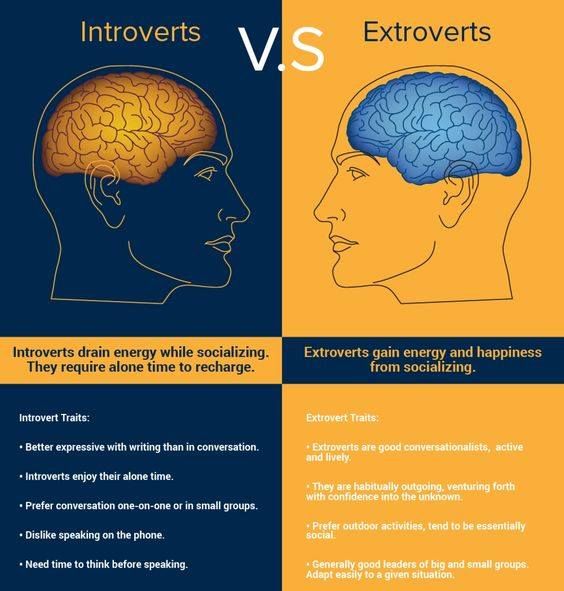 However, it is equally important to regularly challenge your insularity, if only through situations such as going out to lunch with colleagues or participating more actively in work meetings.
However, it is equally important to regularly challenge your insularity, if only through situations such as going out to lunch with colleagues or participating more actively in work meetings.
Former Yahoo CEO Marissa Mayer—yes, she's also an introvert—has her own way of coping with the discomfort of being in public situations. It establishes a certain period of time before the expiration of which it has no right to leave the event. If by this time it doesn’t get better, you can leave, but not earlier. Forcing herself to sit out the allotted time, Mayer overcame shyness and stiffness. When you know that you only need to hold out for 30-40 minutes, you begin to feel more free and more actively involved in the work.
5. Use the internet to showcase your strengths
Introverts may look a bit shy, but whatever they give up in face-to-face communication, these guys make up for on the internet. They have a much easier relationship with the written word, so it's no surprise that introverts feel like a fish in water on social networks.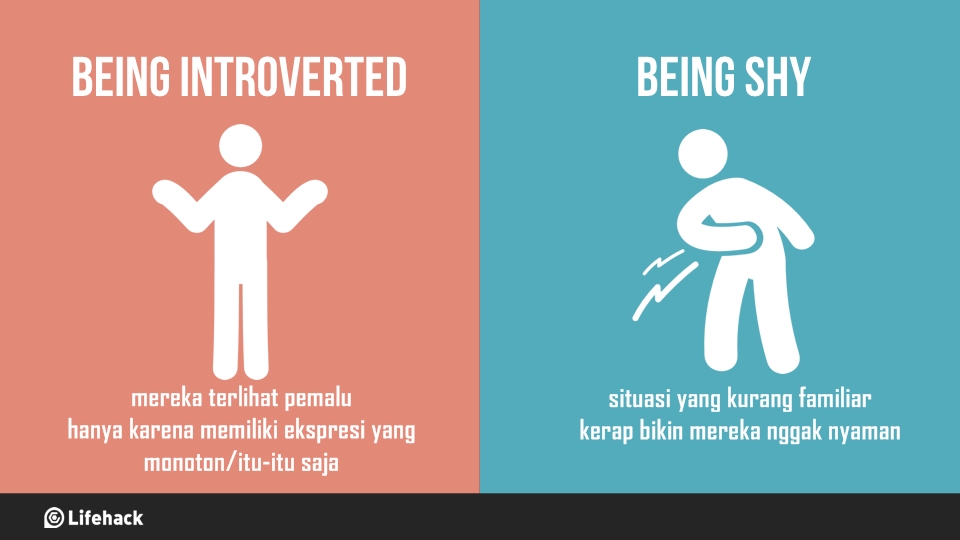
That's great, now is the time! A large contact list and the ability to write eloquent letters have never been more effective in convincing people of your abilities and talents.
These tips will help you understand what makes you better than others, find advantages in your character traits and play by your own rules.
Read also 🧐
- 5 popular myths about introverts and extroverts
- 4 tips on how to become more confident in communication
- 5 techniques that will help introverts successfully communicate with the outside world
Why introverts are great leaders
Finding a job 4558830
(Editorial) Moderator
Manager, Moscow
Contrary to the opinion that introverts cannot be successful leaders, it is known that 40% of world famous leaders are introverts. Find out six reasons why the role of leader is best entrusted to a person who is immersed in himself.
You'd be surprised how many successful leaders are introverts. Many of them admit that at one time they had to deal with the erroneous opinions of others about themselves, caused by their serene disposition.
According to surveys, 55-60% of men and 50-55% of women are introverts. It's no secret that out of two job applicants, the company is likely to hire the extrovert. However, the fact that the most respected and successful people of the past and present are introverts is not just a coincidence. For example:
Here are six reasons why introverts are good leaders:
1. They are better listeners
Introverts are considered good listeners. Research shows that introverted leaders are extremely successful with push groups because they always listen carefully to what their team has to say or hide.
This is also due to the fact that extroverts tend to be less proactive. If you are an extrovert, then you should learn how to listen from your introvert colleagues. So you can better communicate and implement the ideas of your team.
So you can better communicate and implement the ideas of your team.
2. They like to be alone
Introverts concentrate better when alone. This gives them the opportunity to introspect, reason, monitor, prepare or develop concepts, not to mention research and create their own written works. However, not all extroverts can boast the same, because they draw energy from communication. For such extroverts, such a trait helps to avoid unnecessary hitches and gain even greater determination. Solitude develops our thinking skills. There is a lot to learn from introverts here.
3. Introverts are wizards of preparation
Thoughtfulness and thorough preparation are the principles of every leader, but for introverts they are natural life principles. This is because introverts think before they speak. They spare no time to prepare answers (guided by their goals).
4. Introverts Challenge Themselves
Introverts spend a lot of time thinking about and exploring areas in which they need to navigate better. Focus and awareness are very important for the growth of a leader and his team. The leader's desire to challenge himself will drive team members to do the same, evaluating themselves, colleagues, and the team to become the best.
Focus and awareness are very important for the growth of a leader and his team. The leader's desire to challenge himself will drive team members to do the same, evaluating themselves, colleagues, and the team to become the best.
5 . They get to the root of the problem
Introverted leaders like to dig deep into the problems and ideas before they move on to new questions. They think in depth, not in breadth. They are attracted to discussions, not superficial conversations, and they know how to ask good questions and hear the answers to them.
6. Introverts demonstrate coolness
Leaders who demonstrate a sense of self-confidence can do wonders for a company. When a disaster strikes or the situation in a company becomes dire enough, there is nothing worse and more depressing than the sight of an agitated executive demanding reports. Introverts know how to control their emotions and do it naturally. Their caring, thoughtful and calm actions are not only effective in encouraging company employees, but also in creating the same type of balanced approach in other colleagues.
Their caring, thoughtful and calm actions are not only effective in encouraging company employees, but also in creating the same type of balanced approach in other colleagues.
Of course, extroverts have a lot of advantages, but the ability of introverts to hear others, plan, theorize, systematize information are especially valuable skills!
P.S.
No one claims that extroverts are not so great leaders. They are good leaders. This is confirmed by the fact that 40% of successful leaders are introverts, and the rest are extroverts. Ambiverts also have pros and cons.
However, we often pay attention to extroverts first of all. Even the positions themselves sometimes imply the traits of an extrovert. An introvert is not synonymous with shyness. This is a broad concept.
It is a mistake to think of introverts as passive and incapable. They have their own valuable traits and can become great leaders. This applies not only to leadership positions, it manifests itself at all levels.

